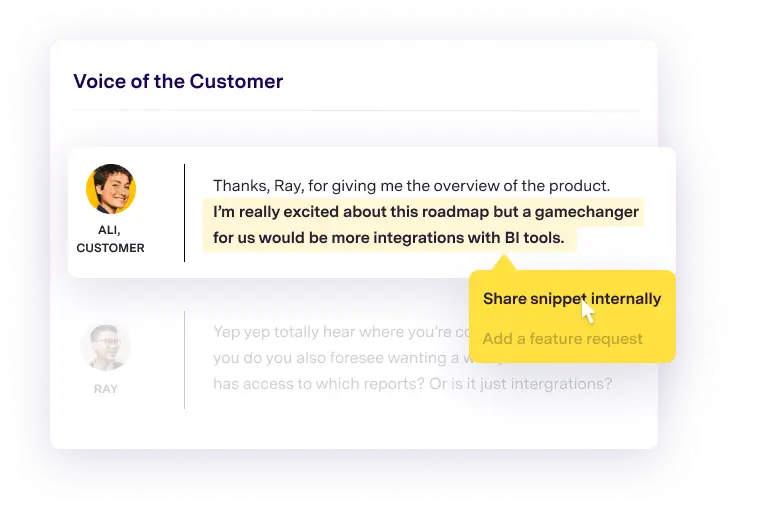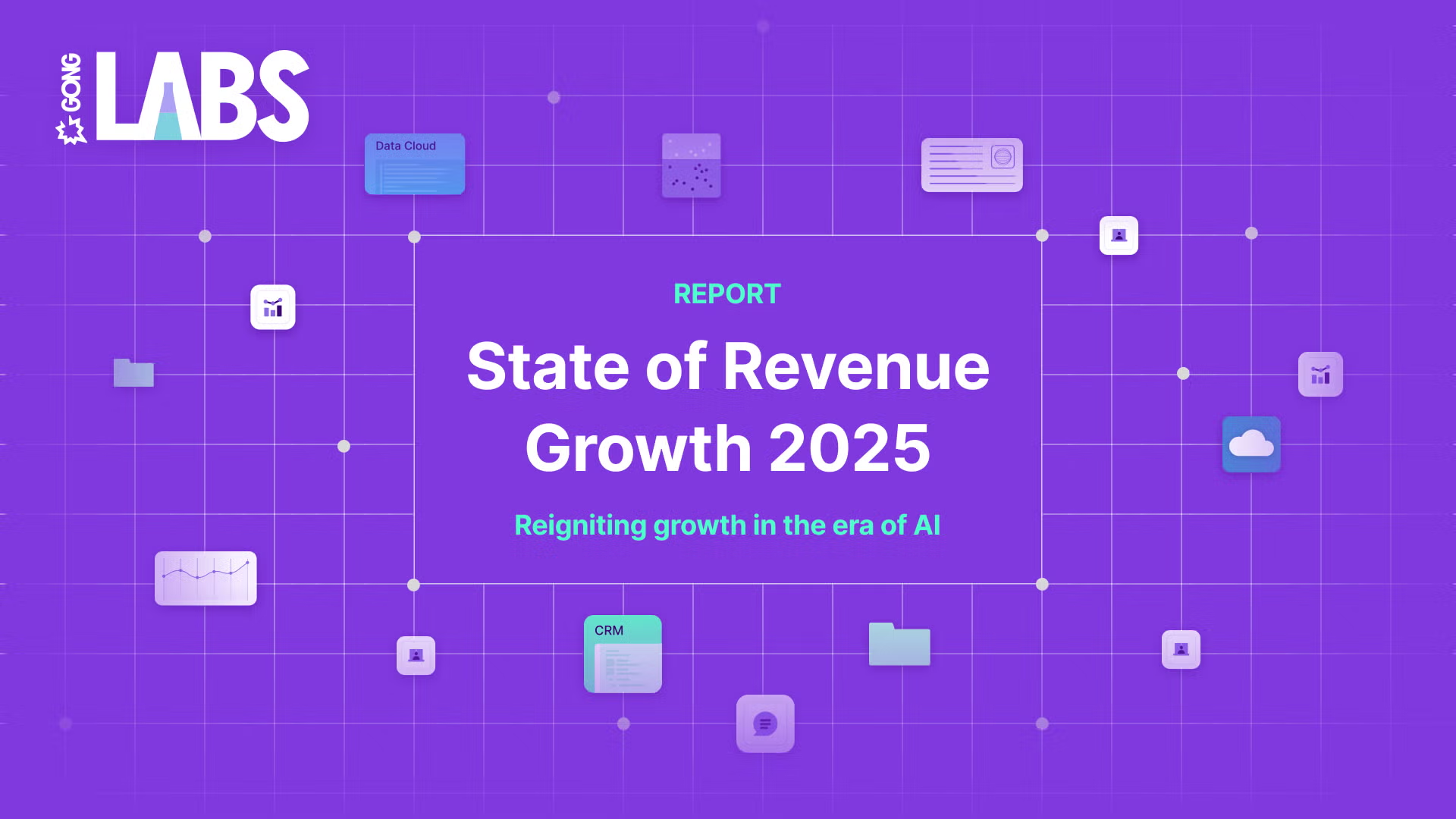Executive insights
Carl Eschenbach: The Secret to Sustaining Rapid Growth

Sheena Badani
Content Author
Published on: March 23, 2020

How can you set your company up to scale quickly?
Why is adding more sales reps not always a good idea?
What are the key metrics of a strong startup?
On a recent episode of the Reveal podcast, we connected with Carl Eschenbach, partner at Sequoia Capital, for answers to these and other questions that are top of mind for revenue leaders.
Key Points to Remember
- Sales leaders need to understand the unit economics of sales to help people scale.
- The heart very rarely steers you wrong, as long as you have the data to back it up.
- Simplicity scales, complexity doesn’t.
- Enablement and training is what allows you to scale while maintaining rep productivity.
- The most important metric is your forecasting accuracy.
Embracing the Art and Science of Selling
There’s a number of different attributes I look for in companies, and specifically sales leaders. They always have a significant amount of drive and perseverance, because it’s a hard job.
Every day you wake up, the odometer’s back to zero. And you’ve got to go figure out how to put more numbers on the board. They have to be humble, grounded, and very authentic. I think authentic leaders are ones that people will want to follow.
There’s this notion that there’s an art and there’s a science of selling. The art is the creative side of selling. How do you do deals? How do you structure them? How do you get the customers to buy on your timeframe versus theirs? How can you be really creative on the art side of it?
But now, as we fast forward from when I grew up in sales, there’s a science side of this and there’s a data side of this. I really make sure that the sales leaders have the creativity to build, lead, and scale organizations. And be capable of doing deals. But also, do they understand the deep dive on the metrics and the analysis associated specifically with running a sales organization?
And there are a lot more tools. I think these days the sales leader can’t be just the “rainmaker sales leader” who comes in and helps close a deal. They’ve got to be operationally proficient and effective to understand the unit economics of sales to help people scale.
I also think they have to be inspirational, not just motivational. Motivating sales leaders are ones who push people. Motivation’s a push technique. To think about an inspiring person, or someone who inspires, it’s a pull technique.
The venture business is one where you are forced to learn every day. You meet so many different companies. It stretches your mind and your imagination.
Follow Your Heart
Your mind is a very powerful superhuman computer. It has multiple components, two sides to it. And if you solely rely on your intellectual horsepower and data, your mind will confuse you.
While your heart is not the biggest muscle in your body, it’s the single most important. When your heart dies, you die. So when I come to very critical decisions in my personal or professional life, I get all the data. I think about the data. I use it to the best of my ability. But in the end, I ultimately lean on my heart to make the decision because it very rarely steers you wrong, as long as you have the data to back it up.
If you just rely on your intellectual curiosity, you’ll confuse the hell out of yourself. How many times have you gone to bed at night and said, “I’m gonna do this”? You wake up the next morning. You’re like, “No, I’m gonna dothis.” Or you go and talk to someone. And what does that someone do? They confuse you again.
There were many times when there was an employee who, in my heart and in my gut, I knew wasn’t going to make it. And we would try to save him or her. We would work with them and we’expect them to change.
And in the end, people are wired how we’re wired. We are who we are, especially the older we get. And my heart was telling me, “Just do the right thing for this person. It’s not a fit. Help them go find something else, and treat them with respect.” And you drag it out and eventually you do it. And after you do it, everyone’s relieved, including the person.
Great people build great companies. You can’t care for your holders unless you have the right people who want to be part of that very powerful culture.
Simplicity Scales
I think you have to keep things simple. Simplicity scales, complexity doesn’t.
By nature of companies growing and scaling quickly, complexity creeps into the operating model and the business model. There’s more people. There’s more layers. There’s more decision makers, there’s more legal contracts, more compliance, more controls. There’s just a lot that comes into a rapidly scaling company on the operating side.
I think the ones who can navigate and keep it simple as long as they can are the ones who will find the most success.
Make sure you’re focused on speed of execution. There is no good defense for speed. If you’re faster than me, you’re faster than me. I can come up with a defensive strategy, but you’re faster than me, right? You can get faster as a company as you scale, through keeping things simple.
Build a Strong Sales Foundation
I would make sure, if I’m a sales leader, as I hire people I focus on enablement and training. I think enablement and training is ultimately what allows you to scale, maintain rep productivity, and make sure you have a lot of people achieving their goal.
One of the failures I see is people raise a new round. And from there, what do they immediately do? They start to hire sales reps. And all of a sudden they go from 70 percent or 80 percent of their sales reps making their number, and it drops to 40 percent.
And what do we do? We keep hiring because we can. As opposed to focusing on the first order issue. Making sure we have training and enablement in place. Working with product marketing, product management, and making sure that we maintain as many people being successful. Because it creates the right culture. Success breeds success.
There’s nothing more exciting to me than watching young people in their sales careers just have life changing moments. Whether they get a promotion, or they’ve landed their first big deal, or they have a financial outcome that changes their life.
Key Metrics of a Strong Startup
If it’s an early-stage company, there’s not a lot of data. So then it’s really about the team, the entrepreneur or the founder. How self-aware they are. Understanding their strengths and weaknesses. Do they have the ability to go out and recruit people to surround themselves, to build a company? Do they have a track record of success?
And later stage companies, looking at growth. You look at sales efficiencies. You look at how much you’re spending in Sales and Marketing to generate a dollar back of revenue or bookings. You look at customer stickiness. Another way to think about it is churn. You want to see low churn. There’s a lot of companies that go out and sell a one-time sale, but it’s not repeatable. And then you have customer churn, or you’ve got to fill that leaky bucket back up or even grow the company again.
Another metric is the burn rate. It’s okay to burn money to build a business. At some point, you want to be able to look at an operating plan, and see that someone does have the ability to trend towards profitability. And they know what levers they need to pull to go in that direction.
I think that’s really important as well, because growth is probably still the number one most important thing we look for when we’re making an investment. We’re okay with people burning money to do that. But you also want to see a path towards profitability in some timeframe that makes sense for everyone else.
The Importance of Accurate Forecasting
There are so many metrics. The most important metric is your forecasting accuracy. I think the forecast is so hypercritical. It’s what sets the operating plan for the company. It’s what determines your OPEX spend that you can have in a company, how many people you can hire, how much investment you can make.
So getting that forecast right, the accuracy of it, is important. Calling a number and then beating it, while a lot of people think it’s exciting—you probably did a pretty big disservice to the company because we didn’t invest enough. If we would have known this was going to be our result, we could have invested more.
And on the flip side, if you call a number and you keep consistently missing it, and you’re building the operating plan based on that number, you’re going to have this big bow wave of expense. So even when the bookings slow down, those expenses don’t slow down.
The forecast is not just owned by Sales. It’s a company-wide sport, right? Sales is an enterprise sport. Meaning every function in the company has a responsibility to help Sales be successful, and vice versa.
More Reps are Embracing Tech
I’m really excited about some of the new sales tech like Gong. But I grew up in a world where we lived on spreadsheets. Then we had Salesforce, and all of those are just systems of records. Then we have things like systems of engagement. And now we’re into systems of intelligence with revenue intelligence.
At one time, when these tools were coming out, they were being perceived as being for the sales leadership themselves. And for sales managers. Now, we’re seeing this scenario where sales reps and individual contributors themselves are saying, “Wow, this is a tool for me. Mr. Manager, you want to look over my shoulder? You want to listen to my call? You want to look at what I’m doing? Go ahead. But, you know what? This is a powerful tool for me!”
Never lose the creative side of selling. The most successful salespeople are creative. They figure out how to get things done, how they articulate, how they put proposals together, how they get customers to buy on our timeframe versus theirs.
Subscribe to Reveal: The Revenue Intelligence Podcast
Every week, we interview senior revenue professionals who their insights on how they leverage revenue intelligence to drive success and win their market.
You’ll hear how modern go-to-market teams win, close revenue with critical deal insight, and execute their strategic initiatives—plus all the challenges that come along with it.
Listen now at gong.io/podcasts.

Content Author
Sheena Badani is the Founder of Parint, and an accomplished marketing executive who served as the Head of Product Marketing at Gong. Prior to her leadership at Gong, she held key roles in several major tech companies, including positions at Element and LinkedIn. Her career spans a range of strategic roles focused on growth marketing, product positioning, and brand storytelling. At Gong, she was instrumental in launching the revenue intelligence category, transforming how sales teams use AI-driven insights to optimize performance. She also co-hosted Gong’s "Reveal" podcast, featuring thought leaders across revenue operations.
Discover more from Gong
Check out the latest product information, executive insights, and selling tips and tricks, all on the Gong blog.



